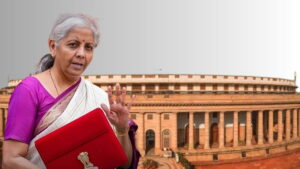Introduction
The introduction of the ,Online Gaming Bill, 2025 has been the talk of the town recently.The rapid growth of digital technologies has transformed entertainment, education, and social interaction in India. Among the most visible manifestations of this shift is the online gaming sector. From casual mobile-based games to competitive e-sports and real-money platforms, gaming has become a part of daily life for millions of Indians, especially youth. However, this transformation has not been without its challenges. Concerns about addiction, financial loss, psychological harm, fraud, and even links to organised crime have raised alarm across policymakers, courts, and civil society.
In response, the Government of India has introduced the Promotion and Regulation of Online Gaming Bill, 2025 (Bill No. 110 of 2025). The Bill attempts to balance the promotion of innovation and employment through e-sports and social gaming, with a strict prohibition on online money games. It proposes the establishment of a national-level authority to oversee the sector, lays down penalties for violations, and grants strong enforcement powers to the government.
This analysis critically examines the Bill in an educational framework, focusing on its objectives, provisions, merits, criticisms, constitutional issues, and potential impact on India’s digital economy.
Background and Rationale
The Statement of Objects and Reasons attached to the Bill highlights two simultaneous realities:
- Opportunity: Online gaming is one of the fastest-growing parts of the creative economy. It contributes to innovation, employment generation, export earnings, and global competitiveness. With India’s young population, technological capabilities, and expanding internet penetration, the country has the potential to be a global hub for gaming innovation.
- Threat: At the same time, online money games, gam es where players stake money in expectation of monetary returns,have caused severe harm. These include addiction, psychological distress, financial ruin, family disruption, andfraudulentpractices. Aggressive advertising and celebrity endorsements amplify their reach, particularly among vulnerable groups. Some platforms, especially those operating from offshore jurisdictions, have also been linked to money laundering, tax evasion, and terrorism financing.
Thus, the government argues for a dual approach: promote e-sports and social/educational games, while banning money games outright.
Key Provisions of the Bill
The Bill is divided into multiple chapters. Some of the important provisions include:
| Chapter | Topic | provisions |
| I | Definitions | E-sports: Competitive online games recognised under the National Sports Governance Act, 2025, based on skill, with no betting. Online social games: Recreational or educational games that do not involve staking money. Online money games: Any online game involving monetary stakes, whether skill-base or chance-based, excluding e-sports. |
| II | Recognition and Promotion | Central Government to recognise, register, and promote e-sports and social games. Establishment of training academies, research centres, awareness campaigns, and incentive schemes. |
| III | Prohibition of Online Money Games | Absolute ban on offering, promoting, or participating in online money games. Ban on advertisements relating to such games. Ban on financial institutions facilitating transactions for such games. |
| IV | Authority on Online Gaming | Establishment of a regulatory Authority with powers to categorise games, issue guidelines, and address complaints. |
| V | Offences and Penalties | Imprisonment up to 3 years and fines up to ₹1 crore for violations. Repeat offenders face stricter punishments. Offences made cognizable and non-bailable. Liability extends to company directors and officers. |
| VI | Enforcement | Power to block access to online money gaming platforms under the IT Act. Power of search, seizure, and arrest without warrant. Protection for officials acting in “good faith.” |
Merits of the Online Gaming Bill 2025
From an educational perspective, the Bill provides multiple positive developments:
- Sectoral Recognition: By distinguishing between e-sports, social games, and money games, the Online Gaming Bill, 2025 provides clarity. This is a step forward from the earlier legal confusion, where all gaming was lumped under “gambling.”
- Promotion of Innovation: Provisions for research, training, and infrastructure for e-sports show a proactive approach to developing India’s global competitiveness.
- Public Health and Consumer Protection: By banning money games, the Bill seeks to address addiction, mental health risks, and financial harm, particularly among vulnerable populations.
- Uniform National Framework: Currently, online gaming is governed by a patchwork of state-level laws. Some states permit skill-based money games, while others ban them. The Bill aims to harmonise regulation across India, reducing legal uncertainty.
- Financial and Security Safeguards: By blocking money game platforms, the Bill aims to combat fraud, money laundering, and threats to national security.
Concerns
While the objectives are laudable, the Bill raises several critical concerns:
- Blanket Ban on Money Games: The Bill prohibits all money games, whether based on skill or chance. Courts in India (e.g., State of Andhra Pradesh v. K. Satyanarayana, 1968) have recognised games of skill (like rummy) as legitimate business activities. By banning even skill-based games, the Bill risks judicial invalidation under Article 19(1)(g) of the Constitution (freedom of trade).
- Disproportionate Penalties: Imprisonment of up to three years and fines up to ₹1 crore, along with non-bailable offences, are harsh measures. They may criminalise entrepreneurs and small operators, creating a chilling effect.
- Federalism Issues: Gambling and betting are traditionally state subjects. By creating a central authority and imposing a national ban, the Bill may face challenges from states that wish to regulate money games themselves.
- Enforcement Challenges: Offshore gaming companies can easily evade Indian bans using VPNs, crypto-payments, and foreign servers. Thus, enforcement may prove ineffective, similar to the struggles with online piracy.
- Economic Impact: India’s real-money gaming sector has attracted investments worth billions of dollars and created thousands of jobs. A blanket ban risks pushing entrepreneurs and investors overseas, stifling innovation.
- Civil Liberties Concerns: Search and seizure powers without warrant (s.16) and blocking of websites raise privacy and due process concerns, especially after the Supreme Court’s recognition of the right to privacy in Puttaswamy v. Union of India (2017).
Constitutional Dimensions
The Bill raises important constitutional questions:
- Freedom of Trade (Art. 19(1)(g)): A blanket ban on money games may be considered disproportionate to the objective. Courts may allow regulation, but not prohibition of legitimate businesses.
- Right to Equality (Art. 14): The distinction between e-sports (allowed) and skill-based money games (banned) could be seen as arbitrary. Both involve skill, yet one is permitted and the other criminalised.
- Federalism (Seventh Schedule): Betting and gambling fall within the State List. The Union justifies its intervention on grounds of cross-border and extra-territorial dimensions, but this may not satisfy all states.
- Right to Privacy and Liberty (Art. 21): Warrantless search and blocking powers may face scrutiny for violating due process and personal liberty.
Comparative Perspectives of Online Gaming Bill 2025
Globally, countries have adopted diverse approaches:
| Country | Regulation |
| UK and EU | Regulate online money games through licensing, taxation, and consumer protection (e.g., age-gating, spending limits). |
| China | Strict restrictions on gaming time for minors. |
| United States | Patchwork regulation at state level, with some states legalising online gambling under supervision. |
India’s approach in this Bill, promotion plus prohibition, leans closer to China’s restrictive model, though with positive recognition of e-sports.
Alternative Approaches
Instead of prohibition, though the Online Gaming Bill, 2025, India could adopt a balanced regulatory framework:
- Licensing system for money games, with mandatory transparency in algorithms.
- Spending caps and age verification to protect vulnerable groups.
- Taxation of money games to generate revenue.
- Regulatory sandboxing to test new models before mainstreaming.
- Public awareness campaigns highlighting risks of addiction, similar to tobacco/alcohol regulation.
Such an approach would allow the government to harness economic potential while addressing social risks.
Financial and Administrative Implications
The Bill estimates ₹50 crore in initial capital and ₹20 crore annually for the proposed Authority. While modest, this may be insufficient for the scale of enforcement required—including monitoring offshore platforms, blocking technologies, and grievance redressal. Without adequate resources, the Authority risks becoming ineffective.
Conclusion
The Promotion and Regulation of Online Gaming Bill, 2025 is a landmark attempt to provide a coherent, national-level legal framework for online gaming in India. Its recognition of e-sports and social games as legitimate industries is progressive and future-oriented. By promoting research, training, and innovation, the Bill positions India as a potential leader in the global gaming economy.
However, the Bill’s blanket prohibition of online money games is problematic. It risks constitutional challenges, enforcement difficulties, economic losses, and civil liberties concerns. Instead of prohibition, a regulated licensing regime with strong consumer protections may better serve India’s interests.
Ultimately, the Bill reflects the government’s dilemma: how to encourage digital innovation while protecting society from harm. Whether India can strike this balance will determine not only the future of its gaming sector but also its broader digital economy.






